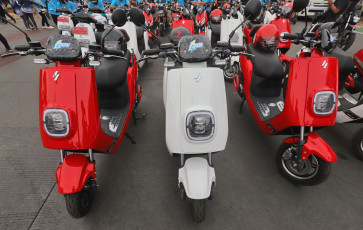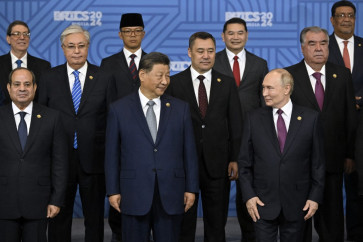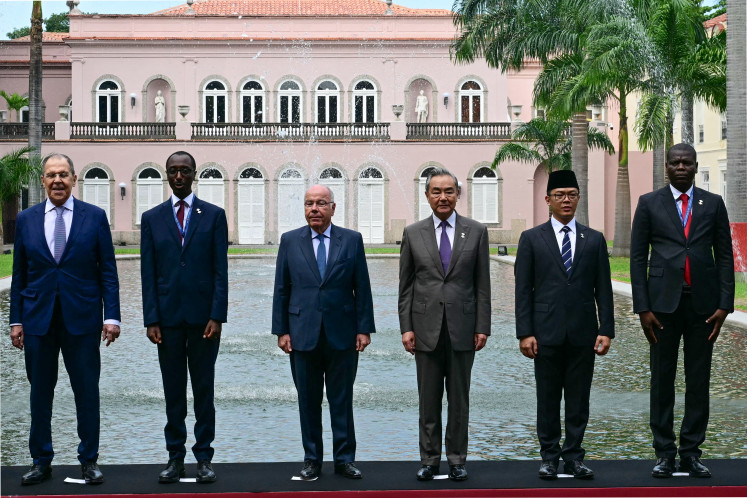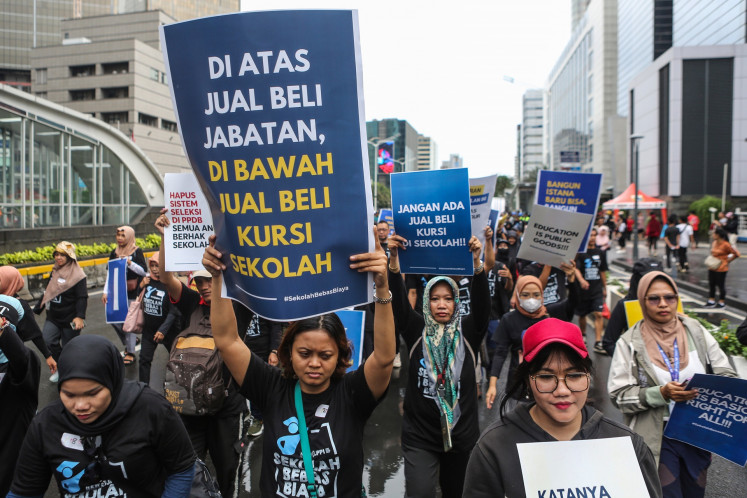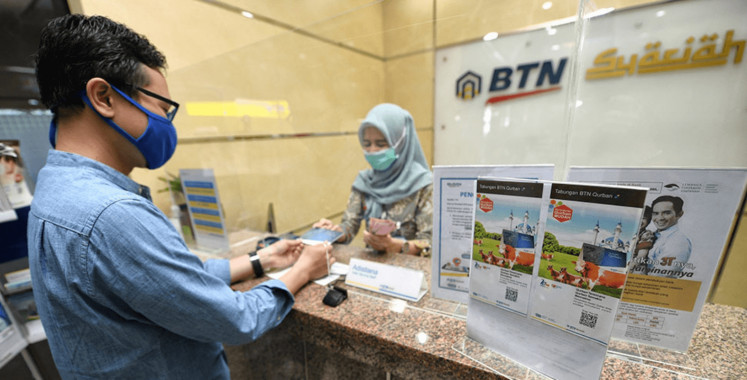The year of charging the EV megaproject
Change text size
Gift Premium Articles
to Anyone
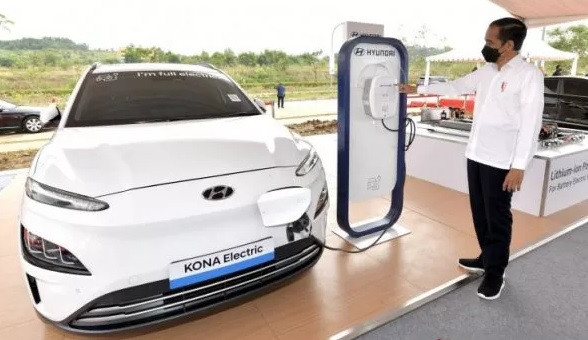
T
he Indonesian electric vehicle (EV) industry ecosystem has attracted billions of dollars of commitments from foreign investors to the country this year, a boon that will face hurdles going forward.
Both state-owned enterprises (SOEs) and private firms are getting the investment pledges they need to develop high value-added technologies, such as raw material smelters and battery-manufacturing plants.
Data from the Investment Ministry from January to September this year showed that realized investment in the metals industry increased by around 59.37 percent year-on-year (yoy) to Rp 131.8 trillion (US$8.5 billion), with a huge amount of this coming from foreign investors.
Capital injection in the logistics sector and mining sector, meanwhile, increased by around 22 percent yoy to Rp 97.6 trillion and around 81.05 percent yoy to Rp 96.5 trillion, respectively.
“There is a match in growth between the investments in mining, metals and industrial areas,” Investment Minister Bahlil Lahadalia told The Jakarta Post in an exclusive interview in November.
Read also: Going heavy on metals: Jokowi vows to keep minerals at home
Indonesia Battery Company (IBC), the state-owned holding firm created last year with the aim of synchronizing government efforts to build an EV battery ecosystem, laid out its detailed grand plan with two foreign firms in September.
The first project, with the callsign “Titan”, is with a Korean-based consortium consisting of battery producer LG Energy Solution (LGES) and several subsidiaries of automotive conglomerate Hyundai Motor Group.
With an estimated total investment value of $8 billion, the cooperation is expected to create five joint ventures (JVs) that will manage the supply chain from extracting minerals from the mining site, processing of raw materials at smelters, to battery component factories and final battery manufacturing site.
With an expected output of 30 gigawatts of battery production per year, the Titan project is expected to build all final battery factories by the second quarter of 2024, while all mining sites and component factories are set to be finished by the second half of 2026.
During the first 37 years of full operation by all JVs, research by University of Indonesia (UI) at the behest of IBC shows that the Titan project would contribute Rp 2,127 trillion to national gross domestic product (GDP) per year and employ 90,203 workers per year.
“The battery factory in Karawang is already 45 percent completed, and this will be the largest EV battery factory in Southeast Asia,” IBC president-director Toto Nugroho said in September.
The second cooperation, dubbed project “Dragon”, is with Chinese-based battery producer Ningbo Contemporary Brunp Lygend Company Limited (CBL), a subsidiary of the world’s largest battery producer Contemporary Amperex Technology (CATL), with an estimated investment value of $6 billion.
Although the preliminary agreement mentioned that the ecosystem structure would be similar to Titan’s version, Dragon’s ecosystem adds a battery-recycling JV that would produce 20 kilotonnes of recycled batteries per year.
With an estimated output of 15 GW of battery production per year, this cooperation aims to secure the upstream infrastructure of mining sites to battery component factories by the third quarter of 2025, with the battery factories by the first quarter of 2026.
It is calculated that the Dragon project will contribute Rp 1,003 trillion to GDP per year and employ 34,945 workers per year during the first 37 years of its full operation.
“They are the largest producer [of batteries] due to the huge size of the Chinese market,” state-owned mining company PT Aneka Tambang president-director Nico Kanter said in September, the firm owns a quarter of the shares in IBC.
The private sector is also catching up in developing domestic EV technology and market, as is shown by coal producer PT Indika Energy’s efforts to diversify its businesses.
After launching the indigenous and mass-produced Alva One electric motorbike in August through its subsidiary PT Ilectra Motor Group, the firm’s other subsidiary signed a JV agreement with an affiliate of Taiwan-based Hon Hai Technology Group, otherwise known as Foxconn.
The result of the JV by PT Mitra Motor Group and Foxteq Singapore, with a total of Rp 68 billion initial investment, is PT Foxconn Indika Motor, a company that was created to build four-wheel or larger EVs.
“This collaboration will create a comprehensive electric vehicle ecosystem that aims to support Indonesia in becoming one of the leading electric vehicle and battery ecosystem developers,” Indika Energy director and group chief investment officer Purbaja Pantja said in September.
Coordinating Maritime Affairs and Investment Minister Luhut Pandjaitan said during a forum organized by the American Chamber of Commerce (AmCham) Indonesia that several automakers were also interested in buying into the EV ecosystem, including Ford, Volkswagen and BASF.
Read also: RI’s restrictive trade hurts manufacturing: World Bank
Ongoing challenges
However, several challenges have plagued Indonesia’s efforts to develop its domestic EV ecosystem. The European Union, for instance, has been putting pressure on Indonesia.
The EU has filed a trade dispute case with the World Trade Organization (WTO) regarding Indonesia’s export ban on nickel ore, due to the importance of nickel to its EV and stainless-steel industry.
The Dispute Settlement Body (DSB) panel of the WTO has concluded that Indonesia violated international law and demanded Indonesia “bring its measures into conformity” as obligated by the General Agreement on Tariffs and Trade (GATT).
In response to this defeat, Indonesia chose to appeal the case on Dec. 8, as stated on the official website.
President Joko “Jokowi” Widodo had previously forecast that Indonesia would lose against the EU, but nonetheless he did not care as the main strategy was to buy time for increasing the absorption of nickel ore in the domestic market.
He expected the appeal in the WTO to last for around five to 10 years, and during that time Indonesia would have the opportunity to mature its EV and battery industry.
Instead of backing down, President Jokowi is adamant on expanding the export ban policy to other commodities, such as bauxite, tin and copper.
“I’d rather have a brawl [with other countries]. Go ahead and sue [Indonesia] in the WTO. Even if we lose, that’s all right. But we will finally have the [downstream] industry developed,” he told the Post in an exclusive interview in November.


